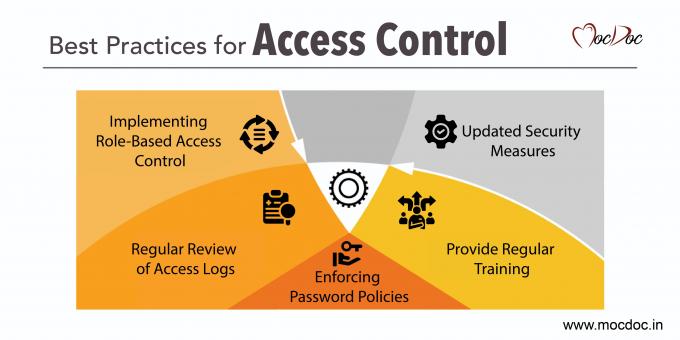Marked 2 years 1 month ago onto The Importance of Access Control in Hospital Information Systems
Source: https://mocdoc.in/util/hospital-management-system
Healthcare has embraced technology in the digital age, and one solution that has transformed the healthcare sector is Hospital Information System. This digital platform has revolutionized how healthcare providers manage and store patient data, simplifying their operations and enhancing patient outcomes. However, HIS also poses significant security risks that cannot be ignored. Therefore, implementing access control measures is crucial in protecting the confidentiality and security of patient data.
Use of sensitive information in Hospital Information Systems
The Hospital Management System is a digital platform that manages different aspects of hospital operations, including sensitive patient data such as medical history, diagnosis, treatment plans, and medications. Unfortunately, cybercriminals target such data, either for personal gain or to cause disruptions in healthcare operations. Thus, implementing access control measures in the hospital management system is critical to ensuring the confidentiality and security of patient data.
Why access control is Essential in Hospital Management Software
The hospital software is a valuable source of sensitive patient data that includes medical history, treatment plans, diagnosis, and medication. However, HIS is a primary target for cybercriminals who aim to steal the data for financial gain or to disrupt healthcare operations. Moreover, patient data is subject to regulatory compliance, such as HIPAA which mandates that healthcare providers must implement administrative, physical, and technical safeguards to prevent unauthorized access to patient data.
Safeguarding patient data and protecting the HIS implies the need for access control over patient data. It involves managing and restricting access to authorized users exclusively. With access control measures in place, healthcare providers can minimize the possibility of data breaches, uphold patient confidentiality, and meet regulatory obligations.




























Comments
Leave your comment below